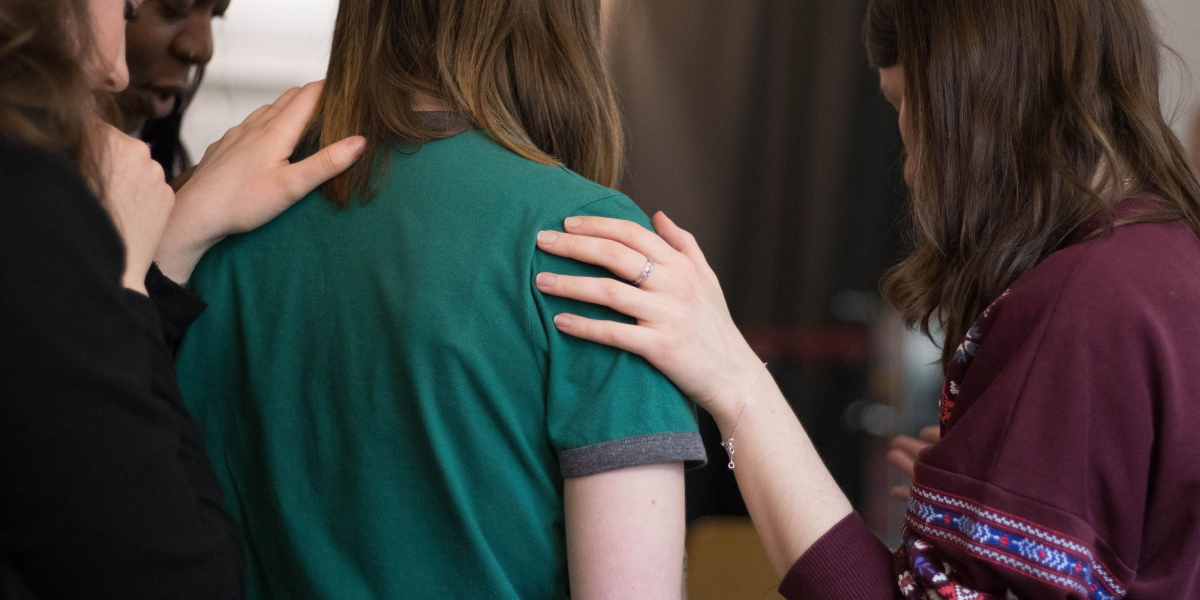
Kindness and meditation
Many of us are not as good friends with ourselves as we could be. We may be overly self-critical, putting a lot of pressure on ourselves, bitterly regretting things we have done, being ashamed, or otherwise speaking negatively to ourselves. Or maybe we just notice that as we meditate we get annoyed and frustrated when we are distracted or lose concentration.
Fortunately, meditation is an exercise in learning to become better friends with ourselves. And, as a result of that, we also become better friends with those around us.
Let everything be exactly as it will, exactly how long it will.
When we meditate, we should leave the negative thoughts and all other discomforts just as they are. Maybe we need to do something later about what creates the discomfort, but as we meditate, we should let these thoughts and feelings be exactly what they want, exactly how long they want.
This is a side of equanimity that is both factual and accepting of what goes on in consciousness, but it also has a touch of warmth towards the negative thoughts and feelings.
Jalāl ad-Dīn Rūmī (1207–1273), describes this attitude in poetry translated by Coleman Barks:
The Guest House
This being human is a guest house.
Every morning a new arrival.A joy, a depression, a meanness,
some momentary awareness comes
as an unexpected visitor.Welcome and entertain them all!
Even if they’re a crowd of sorrows,
who violently sweep your house
empty of its furniture,
still, treat each guest honorably.
He may be clearing you out
for some new delight.The dark thought, the shame, the malice,
meet them at the door laughing,
and invite them in.Be grateful for whoever comes,
because each has been sent
as a guide from beyond.
You do the best you can, and that’s good enough.
At the moment we can expect nothing more from ourselves than that we are ourselves. Nevertheless, the pressure of expectation is often great to achieve something when we meditate. This becomes very clear when we listen inwardly and notice how the expectations constantly pull us away from the moment, into fantasies, pondering, or bustling stress in the body.
Rather, lower the threshold and remember that a good meditation is not one where you have 100% concentration, equanimity, and sensory clarity. A good meditation is one you have done.
And remember: You do the best you can, and that’s good enough.
Gratitude
We can also show kindness to ourselves by taking the time to be grateful.
Here is a useful exercise for such gratitude. Every time you are distracted and come back to the meditation object or technique, spend a few seconds thanking yourself. It was your concentration and sense of clarity that made you aware of the distraction and brought you back to meditation. Even better, it is positive that you notice this instead of getting frustrated. And then, after a meditation session, feel free to spend a few seconds thanking yourself for taking the time to meditate.
You can also dedicate some of your practice to remembering other things you are grateful for in everyday life: a beautiful sunset, a kind friend, a playful pet, a warm mother, and so on. This is an expression of love and kindness to the world that affects us at a deep level.
Kindness as a formal practice
In the Unified Mindfulness system, kindness and gratitude practices fall under Nurture positive, a meditation path where we consciously create positive emotions and thoughts. The path of Nurture positive can be found in some form in most contemplative traditions around the world.
For example, there is a long tradition of kindness meditation in Theravada Buddhism. In Pali, it is called mettā, in Sanskrit maitrī, or loving-kindness in English. When you practice mettā, you wish security, joy, health, peace, and so on for yourself, for friends, and even for people you find challenging.
A simpler version of mettā is simply to nurture a friendly attitude by bringing out kindness from all your emotions and thoughts. Keep the kindness in consciousness and give it space. Let it spread by itself and help it to fill the body and mind.